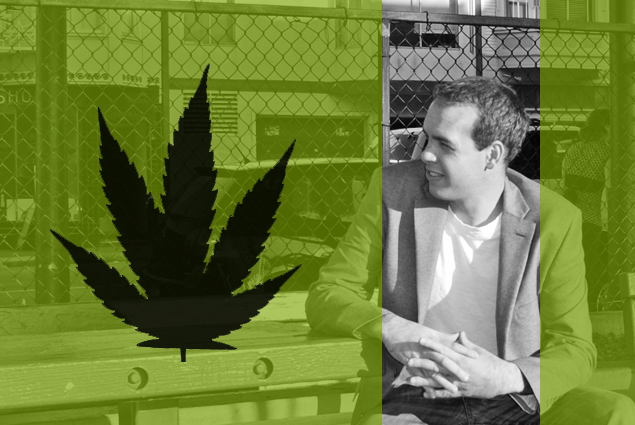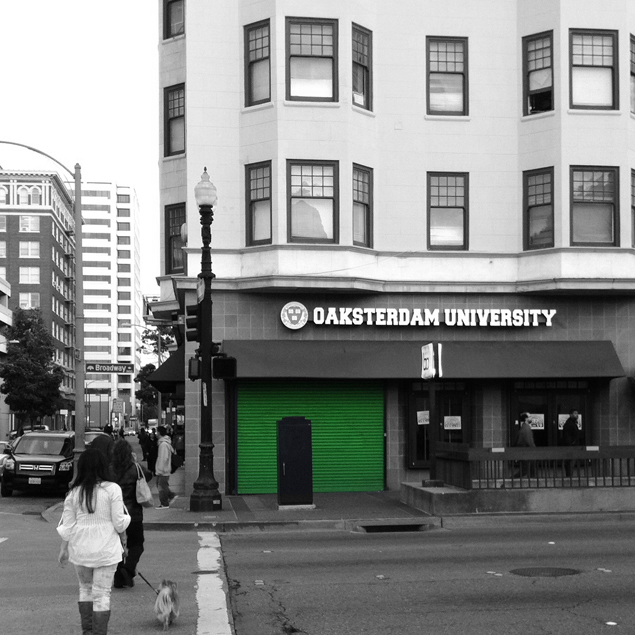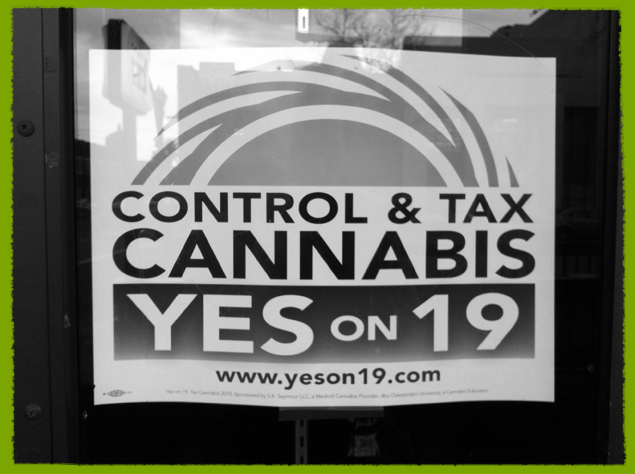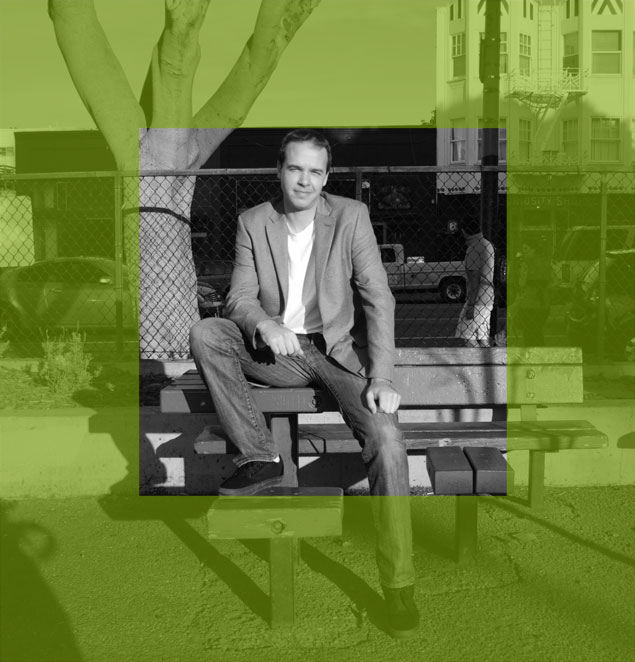
David Downs has got to be one of the Bay Area’s busiest independent journalists. His weekly “Legalization Nation” column, covering the politics, economics, and culture of cannabis, appears in the East Bay Express every week, and he writes features for magazines including Wired, Rolling Stone, Juxtapoz, and The Onion. Last year he followed the pot legalization bill, Proposition 19, intensively. I caught up with him as he was getting ready to cover MacWorld for The Examiner and finishing up a profile on the owner of the Golden State Warriors which will run in Wired magazine in March. He’s also contributing to a new project: The Marijuana Business Report.
How did you get your start in journalism?
I started doing column writing for my high school newspaper at age sixteen. From there I started writing for the local daily newspaper in the town I was growing up in.
Where did you grow up?
My family moved to the Mojave Desert when I was five, and we lived in a town of like 60,000 people called Apple Valley, out on the edge of the Mojave Desert and San Bernardino County.
When and why did you start covering pot?
When I was at UC Santa Barbara. I realized you could lose your federal financial aid for an offense that was a ticket in the city where I went to school. I wrote about it because I thought that seemed like a misguided policy. The federal position on medical marijuana is that it’s not a medicine, and the DEA intends to enforce federal law in medical marijuana states, including California.
In a recent column, you wrote about the $15 billion destined for drug enforcement in 2011. Will budget constraints force a reconsideration of drug policy?
People can have pretty deep pockets for this kind of lunacy. Prop 19 promised money—maybe more than it could have really delivered—but that wasn’t enough to get Californians to vote it into law. Even though the state’s in the shitter, and we’re printing money to keep people in jail. So is the federal government. If you just make it about dollars instead of people, it won’t ever be enough. With medical marijuana in the 1990’s, it was about dying AIDS patients, dying cancer patients, and how fucked up it was that these people couldn’t get medicine, or could go to jail for using their medicine. But it’s good to have that argument at hand—if someone wants to make it about dollars.

What is the significance of Prop 19, despite it not passing into law?
It made California a global story. There’s been some studies that have looked at how the level of coverage of Prop 19 was two or three times higher than it was for medical marijuana in 1995. Schwarzenegger asked that we have a debate on this issue, and we had it—a lot of people on both sides said crazy things. I felt like, at the end of that election, people knew where they stood. Another thing that happened was Prop 19 elevated the dialogue to a level where people walked away with alliances. The legalization team figured out who their friends were, and found some new ones, and they have a big email list of everybody who’s on that team and can roll that into their 2012 campaign.
Is there a cannabis culture peculiar to California?
California’s been the center of the counterculture in a lot of ways since the 60s, so weed got pulled up along with that. It’s in the DNA of the state. What flies here looks like insanity one state over. So it definitely is a unique culture. I haven’t really spent any time in Colorado, but I’ve spent some time in Arizona, where there’s not really a pot culture, and New York, where it’s expensive and underground.
With Oakland the first city in the US to tax marijuana, is the East Bay ground zero for pot?
The East Bay, and Oakland in particular, has a really unique synergy between its elected officials and its medical cannabis industry. Other medical marijuana industries in other towns are realizing that they need to pay to play the same way the Oakland kids have, if they want protection, security, representation: everything that businesses want from local governments. And so, in that respect, Oakland is ground zero. In another respect it’s not. Colorado has a for-profit model that allows businesses to extract profit from medical cannabis, unlike California. You can take those margins and put them in your pocket, or put them into another business, whatever you want to do. So they’re becoming an economic center of it, in a lot of ways.
Any thoughts on Richard Lee, founder of Oaksterdam?
I have a lot of thoughts about Richard Lee. He’s a paralyzed former Aerosmith roadie who changed history. Or at least got his name in history. If he never fell off that stage scaffold, it all never would have happened… you can’t make that stuff up. Tom Wolfe couldn’t write a character like Rich Lee. He opened a hemp store in Texas and realized that Federal law was really fucked up and so he became an activist. He takes money from the pot industry and turns it towards activism—which is something a lot of people didn’t realize could be done. I think he’s a pretty good guy. I certainly don’t think he’s some kind of Dick Cheney-style mastermind.

What are your predictions for where pot legalization efforts are going?
It’s really hard to tell. It’s one of those things that vacillates. My new sort of macro theory is that drug policy is just another lever that politicians in a democracy can pull to exert control. Because drug users are inevitably confined to a minority of people. If weed was totally legal, public health officials suspect that maybe no more than 18% of the population would regularly use it. It’s just not something everybody’s into. So it’s always going to be a minority and whenever there’s a minority, it’s something to attack from a political perspective; you can get a majority to go after a minority.
You’ve written on technology, business, music, and drugs. Having covered all these areas, where do you find they intersect, and have you found any surprises?
Pot’s so endemic that it’s got all these spokes that shoot off in all sorts of directions. All the hit technology of our era came from 60’s, 70’s Palo Alto hippie freaks taking acid. The counterculture has been a huge part of technology since it moved out of the Universities. There’s quotes about Steve Jobs taking acid. You see it today where you have these libertarian sensibilities in the tech industry. They gave a lot of money to Prop 19. A lot of Facebook employees; the inventor of Gmail, I believe. The Internet has united the reformer community with email newslists and bulletin boards and news sites. Bad news spreads immediately, good news spreads too, and people can push back against crazy right-wing demagoguery. You didn’t have that before. There’s a huge nexus between musicians, who are always getting high, the internet—which is based on high people—and drugs, which will get you high.
You used to work for Village Voice media. What’s your view of the recent legal battle between Village Voice Media and the San Francisco Bay Guardian?
The legal battle was very interesting to watch, because it set this precedent about undercutting the competition that is widely applicable. I mean, Best Buy cells CDs at a loss to get you in the door. The only difference is that there’s no smoking gun email saying “we want to put the other guys out of business.” Which there actually was, in this case. The Village Voice / New Times team had more money, and I honestly think a deeper paper and better reporting. But they needed a better local lawyer. There’s a cautionary tale in there about remote ownership, and if you’re an out of town company owning a media property, to really understand what you’re getting into. They clearly didn’t. They lost, and they owe a lot of money. That’s a huge blow to them.

You’ve also worked a lot with independent newsweeklies like the East Bay Express. What is the state of alternative newsweeklies these days?
Alt-weeklies have a long hard fight ahead of them to ensure a future. I want there to be a future for alt-weeklies because they’re how I start and I’ve always been a fan of them. Part of it is the creative destruction of technology, with ads moving to online. The same thing is happening to the daily newspapers, and with radio as well. There’s rampant consolidation, cost-cutting, staff cutting, and that’s affecting the content and making people defect to TV and the Internet.
What’s your advice for young journalists just starting out?
Things are changing so fast that anyone who’s made it, that model is already broken. Some days it feels like I’m the polar bear on the ice floe, out there on the ocean. My advice is really all the cliché stuff. Work really really hard. Believe in yourself. Be a really good writer, or work at that a lot. Write every day. Just because you don’t have an assignment doesn’t mean you’re not a writer. I see a lot of people who are waiting to be given the assignment. Just go out and get the story, and worry about selling it later. Your pitch is going to look a lot better to an editor if you already wrote the story. Don’t ask for permission. Ask for forgiveness.
You can find links to David’s stories at http://www.davidrdowns.com







